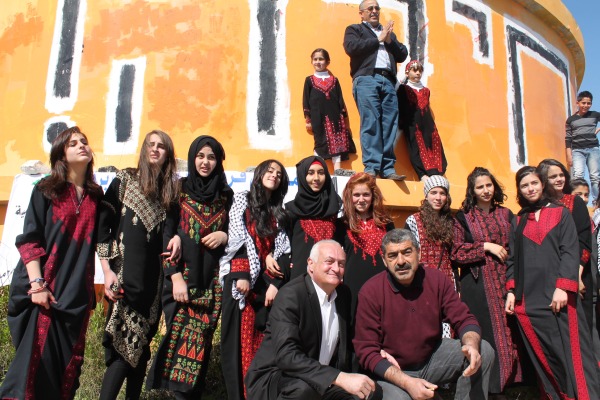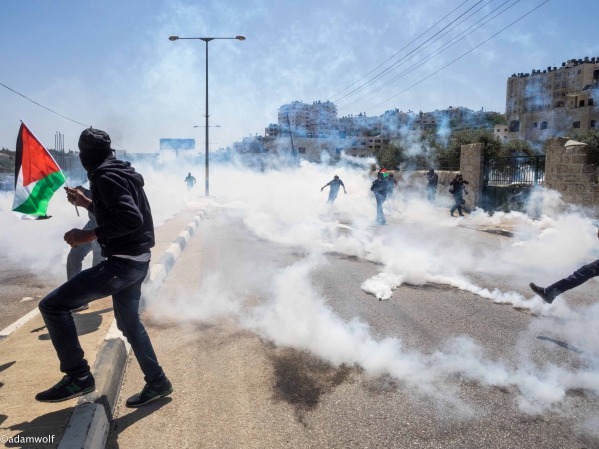-
The fight for the freedom of the 5 Hares Boys continues
6th April 2014 | International Solidarity Movement, Nablus Team | Occupied Palestine In a conversation with Neimeh and Yaseen Shamlawi in their home in Hares we hear about the traumatic journey they have gone through but also the painstaking efforts they have made to build a campaign for their son’s freedom ever since he was arrested […]
-
Burqa festival marks reclaiming of Mas’oudia land
6th April 2014 | International Solidarity Movement, Nablus Team | Burqa, Occupied Palestine Today, the 5th of April, the village of Burqa, south of Nablus, held a march and festival to reclaim parts of their land in Mas’oudia, trying to alter it from area C to area B. The village of Burqa had sent an application to […]
-
Eight activists injured by live ammunition in prisoner release protest outside Ofer prison
4th April 2014 | International Solidarity Movement | Ramallah, Occupied Palestine This afternoon approximately 500 Palestinian, international and Israeli demonstrators gathered close to Ofer Prison in Ramallah to protest against the refusal of the Israeli state to release the fourth group of Palestinian prisoners. As part of the current round of talks between Fatah (the […]
Action Alert An Nabi Saleh Apartheid Wall Arrests BDS Bethlehem Bil'in Cast Lead Demonstration Denial of Entry Ethnic Cleansing Farmers Gaza Global Actions Hebron House Demolition International law Israeli Army Jerusalem Live Ammunition Nablus Ni'lin Prisoner Ramallah Rubber-coated steel bullets Settlement Settlers Settler violence Tear-Gas Canister Video



